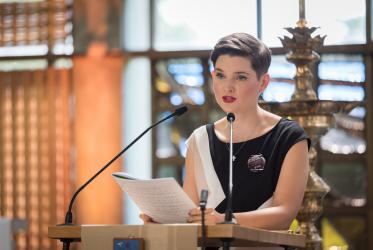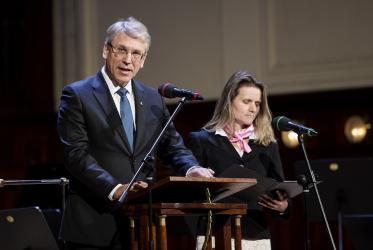Silesian Evangelical Church of the Augsburg Confession
Czech: Slezská církev evangelická augsburského vyznání
Polish: Śląski Kościół Ewangelicki Wyznania Augsburskiego
The origins of the church go back to the Reformation. Students studying in Wittenberg brought the ideas of Lutheranism to Silesia. The duke of Silesia favoured the Reformation. After the Thirty Years War (1618-1648) and the Counter Reformation, the church continued to exist illegally in the mountains. It endured two centuries of repression. Even in modern times, religious freedom was slow to come. During the 20th century the Silesian Evangelical Church passed through five stages of identity: up to 1918 it was part of the Evangelical Church of the Augsburg Confession in Austria; from 1918 to 1920 it belonged to the Lutheran Church in the new Poland; from 1920 to 1938 it was autonomous within the new Czechoslovakian Republic; in 1939 it came again under the Lutheran Church in Poland; from 1940 to 1945 it was part of the Evangelical Union Church in Breslau. After the war, it finally became officially recognized in 1948 as an equal among the other churches in the CSSR.
Historically the congregations are located in Tesin Silesia which is an area in the north-eastern tip of the Czech Republic. In recent years the church has begun mission activities in Prague and other parts of the country. It is still in a period of consolidation, overcoming the consequences of the communist regime. The ministry of word and sacraments is the centre of church life. Great stress is laid on work with children, teenagers and the youth. The main focus is Bible study and education for life in accord with the biblical values. The church has a long tradition of Bible study and prayer meetings. It has pietist roots that can still be found in most of the congregations. Spiritual life is promoted by the Christian Fellowship organization. The Evangelical Society promotes the understanding of the Polish culture and heritage of the church. Czech and Polish are both used in the life of the church. Members of the two national groups live in harmony with each other.
Silesian Diakonia runs 34 facilities providing social, psychological, pastoral and educational assistance. The church has also a well-developed ministry for the elderly and the sick. Religious instruction in schools has a high priority. Christian teachers are formed at the department of Christian education of the pedagogical faculty of the University of Ostrava. A large number of the pastors finished their studies after 1989. In recent years, pastors have been trained in Prague, Warsaw (Poland), Bratislava (Slovakia), and western universities and seminaries. Fellowship with Lutheran believers in Slovakia, Poland, Hungary, Germany and with the Scandinavian churches has given the church a new lease of life.




